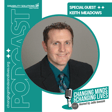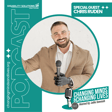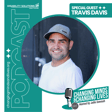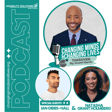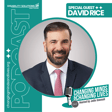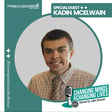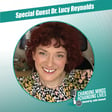
CMCL Interview: Holly O'Hern
Holly O’Hern returns to Changing Minds & Changing Lives for a candid and compassionate conversation with host Julie Sowash about grief in the workplace. Together, they explore the many forms grief can take—from losing a loved one to the quiet mourning of fading DEI commitments. Holly offers thoughtful guidance on how to show up for colleagues who are grieving and why creating space for grief at work is essential for truly inclusive cultures. This episode is a must-listen for leaders, coworkers, and anyone seeking to incorporate empathy into their daily work.
Notes:
Holly O’Hern brings 20+ years of experience in leadership development, DEIB (diversity, equity, inclusion, & belonging), learning and development, team building, and inclusive events and workshops. Specializing in both virtual and in-person training formats, her career has spanned the restaurant industry, the aviation industry, non-profit volunteer leadership, tech, and startups — and her work is informed by her completion of immersive programs on racial equity, trauma-informed workplaces, intentional gathering, collegiate-level DEI certification, and Dr. Brené Brown’s Certified Dare to Lead™ Facilitator program.
Holly believes in supporting and amplifying the voices of people from historically excluded communities and in the importance of all types of people taking responsibility for societal healing. She has been deeply involved in ERG/BRGs, including a talent role that was focused on intersectionality, sponsorship, and corporate oversight and management. She serves in an exec-level role on the Board of Directors for the Chicago Coalition for the Homeless, an organization from which she's learned about racial equity and the systemic impact of advocacy - and was formerly the President of its Associate Board.
Changing Minds and Changing Lives is produced by Disability Solutions, a non-profit consulting firm and leader for global brands in talent acquisition and inclusion for people with disabilities.
